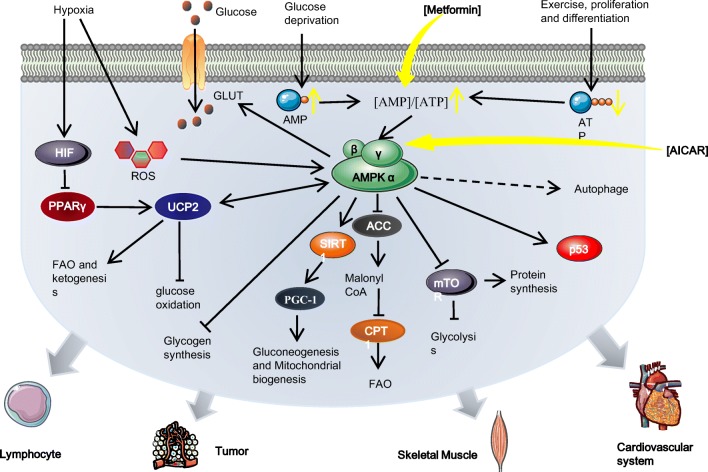Fig. 2.
The regulatory role AMP plays in metabolic reprograming via activation of AMPK: under hypoxia, glucose deprivation and prolonged exercise in multiple tissues, the [AMP]/[ATP] ratio is elevated, thus initiating direct AMP binding to AMPKγ and stimulating AMPK. The activation of AMPK mediates metabolic reprogramming to promote cell survival during energy restriction by promoting catabolic pathways and suppressing anabolic pathways. Specifically, activated AMPK leads to the stimulation of SIRT1 which positively regulates PGC-1α and subsequent mitochondrial energy metabolism and biogenesis. AMPK activity can sustain glycolysis via the direct inhibition of mTOR. AMPK activation also promotes FAO via phosphorylation and inactivation of ACC2, which limits malonyl-CoA generation. Hypoxia elicits metabolic reprogramming via the accumulation of ROS or the HIF-PPARγ-UCP2-AMPK axis. UCP2 overexpression has been shown to increase signaling from AMPK, resulting in the limitation of glucose oxidation and promotion of FAO and ketogenesis. The AMPK agonist metformin activates AMPK by increasing [AMP]/[ATP] ratio. Another agonist, AICAR, simulates AMP to bind to AMPKγ

